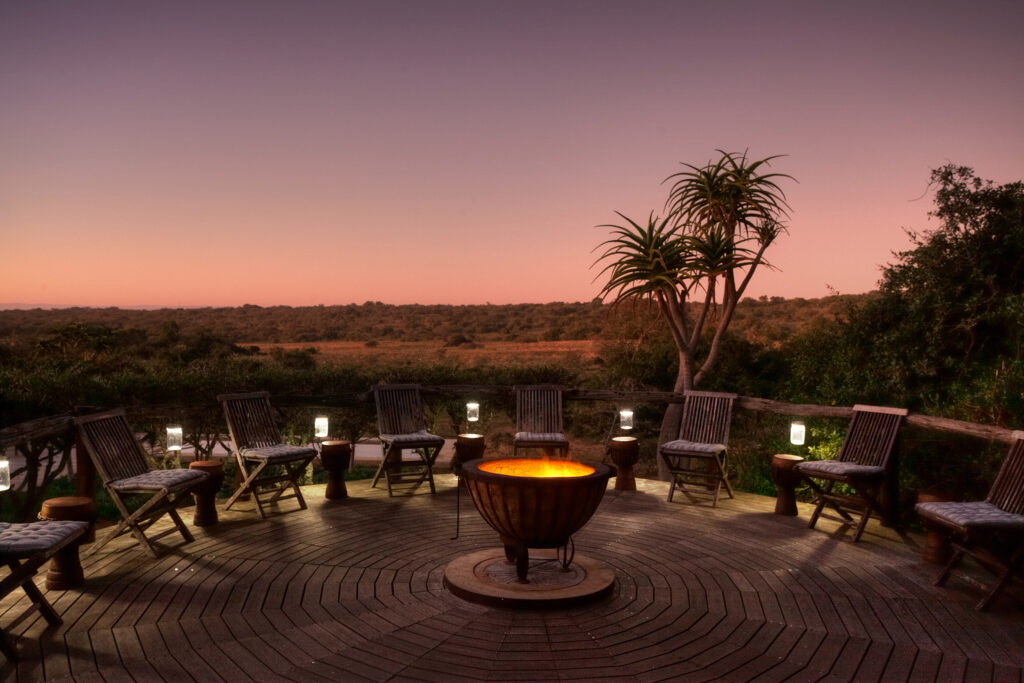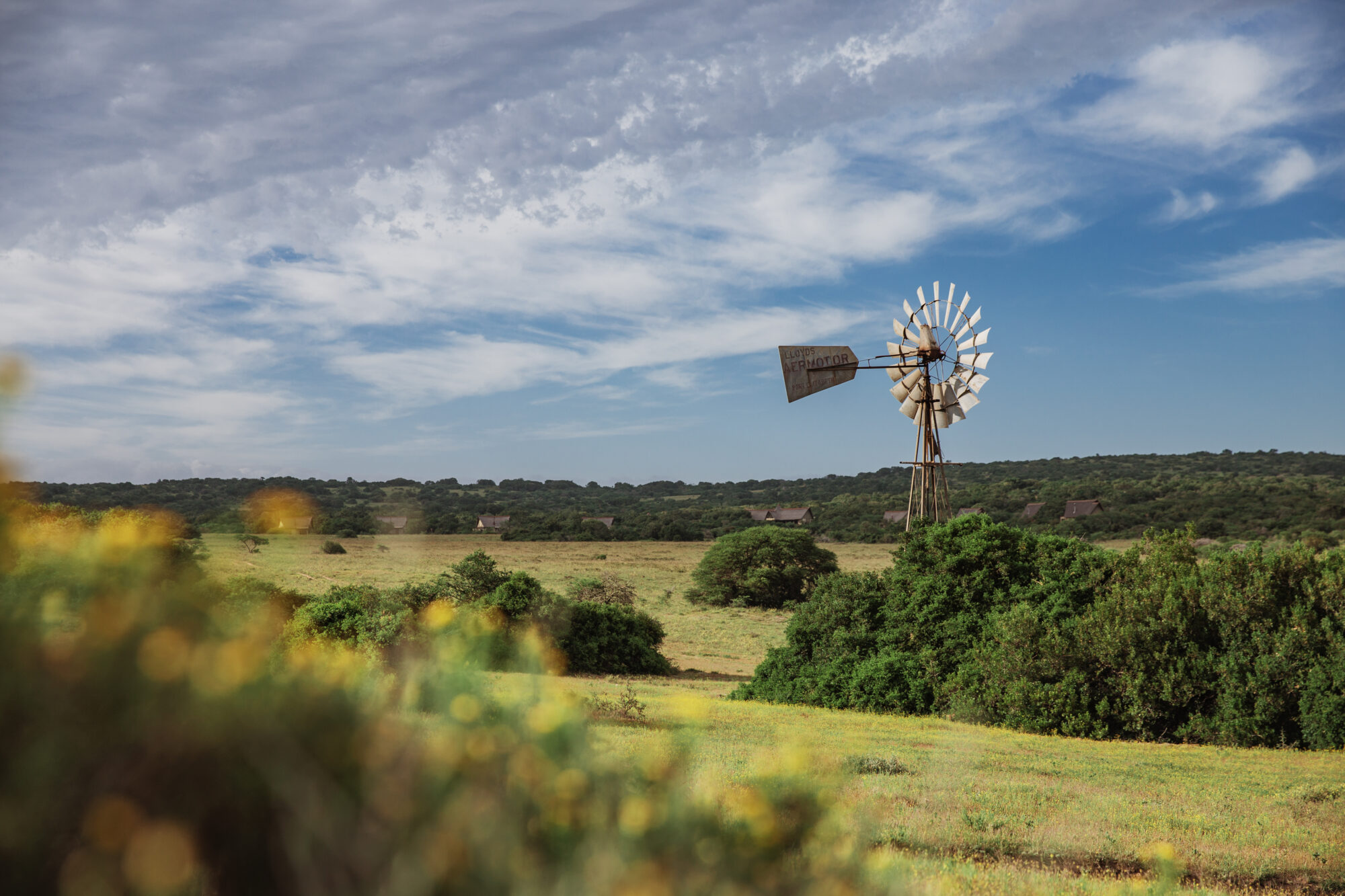THE HISTORY OF AMAKHALA GAME RESERVE
The Amakhala Game Reserve located in the malaria free Eastern Cape of South Africa began in 1999 as a joint conservation venture between the owners of six lodges who are direct descendants of the original Frontier settlers some five generations ago and arrived here with the British settlers of 1820. The families originally settled to farm sheep and cattle on the wild and often hostile Zuurveld.
During 2011 the original members of the Amakhala and the Lion Roars Group created a joint Marketing agreement and brand rejuvenation for the malaria free Amakhala Game Reserve.
The joint marketing agreement now includes 10 properties within the Reserve that fall under a unified marketing umbrella and brand of ‘Amakhala Game Reserve‘. This exciting development has allowed the 8,500ha Amakhala to promote and showcase itself as the premier Game Reserve in the Eastern Cape.
Amakhala Game Reserve is a unique conservation initiative that allows animals to be re-introduced to the area where they once roamed freely and so making a contribution to the conservation of our natural heritage. The land was used to ranch sheep and cattle up to the turn of the century. The challenge has been to re-establish the original flora and fauna species to the area and to return the land to nature.
Reed Valley History – an African Saga
James and Grace Weeks arrived on African soil in 1820 having lost their 2 year old daughter, Elizabeth, during the 9 week sea voyage. They were one of the thousands of families that had left Britain for a new life in the Cape colony. Things had been dismal in Britain with many ex soldiers returning from the Napoleonic wars, looking for work in a struggling economy.
Unbeknown to them, their grant of land was to serve as a buffer between the Cape colony & the increasingly hostile Xhosa tribes. Agriculturally, their land was unsuitable for crops & the area was too small for livestock. This was extremely difficult for James as he was a baker & confectioner back in Britain. They begged the governor for two years to be released of their grants so that they could earn a better living through other means. When it was granted, James began to trade further north with the Xhosa peoples and did quite well for himself.
They had a son who they named Jabez. He grew up with the frontier wars & it was in the 8″ Frontier War that he was wounded and lost his sight. He purchased the farm Reed Valley in 1898 which was originally named Tygerfontein which translated from the Old Dutch means Leopard Spring. Jabez regained his sight shortly before he died.
He had a son named Walter (2nd generation), who farmed the land successfully in a pith helmet & white suit. He ran Merino sheep for their wool. He was the commanding officer of the Alexandria Town Guard during the Boer War. Intelligence had been received than a Jan Smut’s, later to be the prime minister of South Africa, was riding down from the north, & rounding up the willing locals to join his commando. It was ‘Nagmaal’ in the village of Sandflats, now better known as Paterson. Nagmaal was the monthly communion service where all the locals would come to town for a few days to catch up on news, trade & buy their months’ supplies. Captain Walter Weeks waited for all the Afrikaners to enter the church before he & his men rushed to the doors & bolted them shut. They kept & fed them there for three days until Smut’s Commando was no longer a threat.
Jack (3rd generation), was Walter’s son who took over the farm after returning, with his young English bride, from serving in France in the South African Heavy Artillery. During his time, the Addo Elephant Park was formed as many farmers were complaining about the elephants doing damage to their crops. He started the Reed Valley Jersey cattle herd in 1925 which is considered the 3rd oldest Jersey herd in South Africa and continued with the Merino sheep for wool production. Jack also farmed ostriches during the feather boom.
John (4″ generation) was the son of Jack who inherited Reed Valley after returning from Burma in the East, while serving in the Royal Navy. He continued with milk & wool production. John planted one million pineapple plants on Reed Valley. The pineapples were discontinued some years later.
Rod & Mike (5th generation), are the present custodians of Reed Valley. Interestingly enough, Rod & Mike both served time in the South West African conflict with the Cuban backed Angolans, Rod in Special Services battalion & Mike in Infantry battalion. Mike married Justine Knowles in 1994; they designed & built Safari Lodge in 2002. They have two boys, Jethro & Adam. Rod married Tracy Brown in 1993 & had two children, Damon & Tatum. Rod & Tracy converted their family home into a colonial lodge in 1999; they have since designed & built the Bush Lodge in 2007.
We are proud of our ancestors and hope we can adapt to change in order to ensure our children have the opportunity to exist in harmony on this land in our rainbow nation.
We hope to meet you during your stay.
Rod & Tracy

